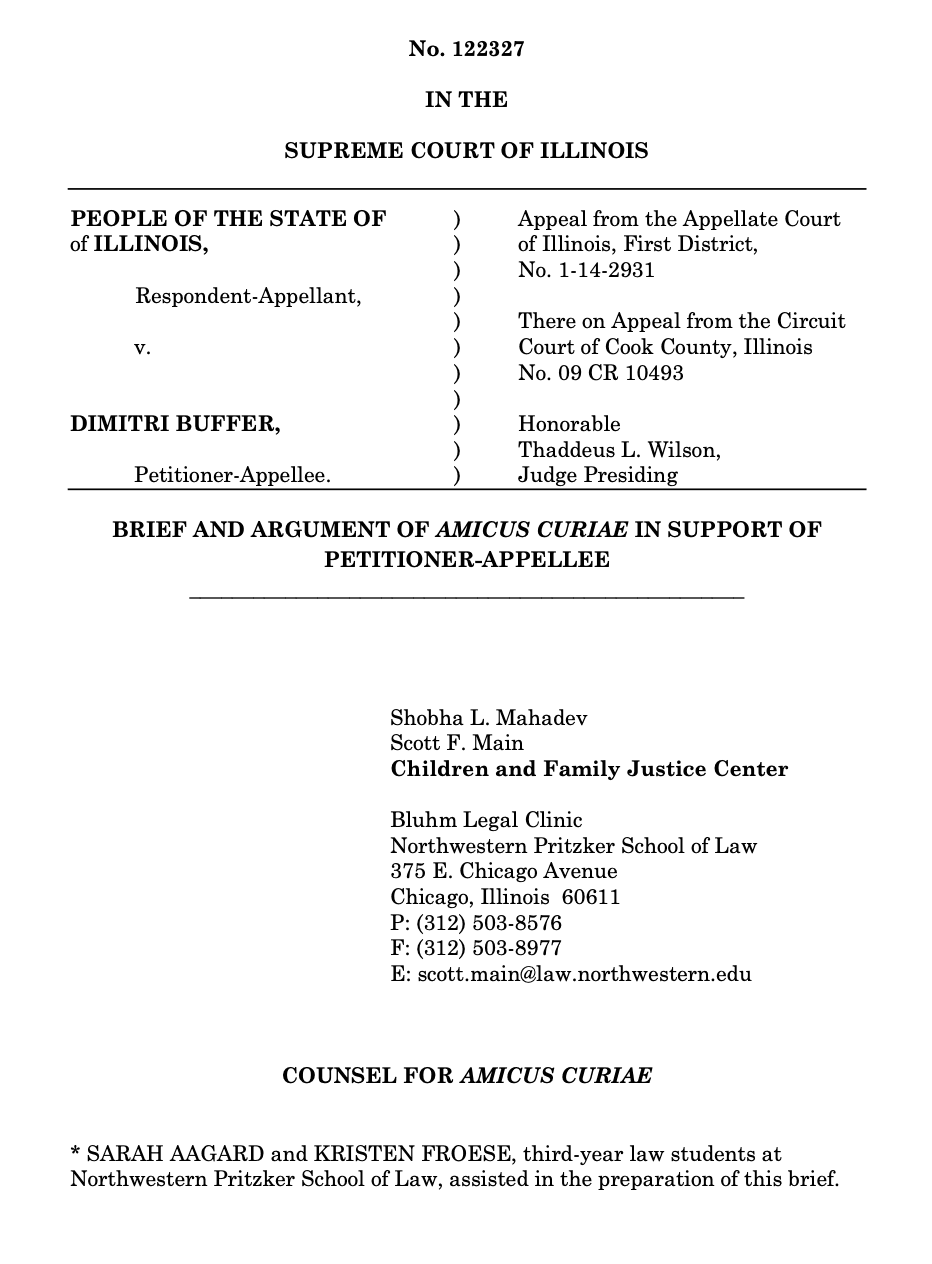
Summary of Argument
Any sentence imposed on a youth under the age of 18 that precludes a “meaningful opportunity to obtain release” is unconstitutional because children are redeemable. Because incarceration is particularly harmful to children, lengthy sentences that fail to provide meaningful opportunity for release based on demonstrated maturity are constitutionally disproportionate. Juveniles are more likely to be rehabilitated before the end of their lengthy sentences, diminishing the underlying justifications for imposing such sentences on youth. Illinois should join its sister states and conclude that sentences like Mr. Buffer’s 50 years, imposed on a 16-year-old, violates the protections of the 8th Amendment.
Illinois’ sentencing structure – which, at the time of this offense, treated a 16-year-old the same as an adult – is contrary to the core principles of Miller and Montgomery. By abandoning indeterminate sentencing, eliminating the ability to earn day-for-day good time credit against such sentences, and requiring an additional 25 years-to-life for use of a firearm during the course of the offense on top of a mandatory minimum, Illinois has made irrelevant the meaningful consideration of youth in imposing impermissibly – and now unconstitutionally – long sentences. The Illinois legislature has failed to create a meaningful opportunity for review of a juvenile’s sentence. Accordingly, this Court must act in the resultant void and overturn Mr. Buffer’s sentence.
Absent this Court’s intervention, Illinois will remain an outlier among courts and legislatures throughout the nation that have recognized that, in the wake of Montgomery, Miller, and Graham, lengthy sentences with no mechanism for release based on demonstrated maturity and rehabilitation are inappropriate for youthful offenders. Without a system of review, lengthy sentences, such as Mr. Buffer’s, are unconstitutional under Graham, Miller, and Montgomery. As a result, this Court should affirm the appellate court’s decision remanding Mr. Buffer’s case for a resentencing hearing